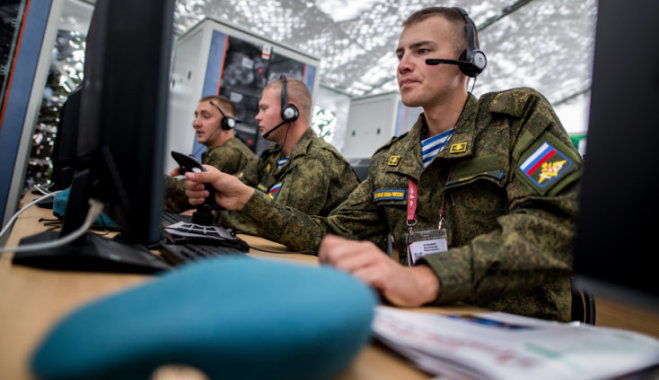Russia Increases Oversight of Military Personnel Online
The Russian Ministry of Defense is ramping up its monitoring of military personnel’s internet activity, allocating nearly half a billion rubles for surveillance of cadets. At the same time, the Russian government is preparing a bill to ban service members from posting photos on social media.
Major Investment in Internet Monitoring
A recent announcement on the government procurement website detailed a closed auction for the “comprehensive equipping of the Russian Armed Forces with tools to control cadets’ and students’ access to internet resources.” According to the document, 485 million rubles have been allocated for this purpose. The equipment is expected to be delivered by the end of May 2019.
Of this amount, 71 million rubles will go toward expanding the current license for InfoWatch Traffic and Device Monitor, a program designed to detect confidential documents in data streams and prevent leaks. According to the manufacturer, the software also tracks internet activity to monitor group sentiment, identify disloyal employees, and “detect abnormal and suspicious staff activity.”
An additional 125 million rubles is earmarked for a suite of internet filtering tools, while 215 million rubles will be spent on a system for special inspections and research of computers, also aimed at preventing information leaks.
Public Reaction and Criticism
Some internet users believe the Ministry of Defense’s plan will be difficult to implement and is mainly aimed at monitoring less tech-savvy young people. Many also argue that the procurement is more about spending money than actually protecting the country’s digital borders.
Proposed Ban on Social Media Posts
The Russian government is also proposing legislation to ban military personnel from posting information online that could reveal their affiliation with the armed forces. This includes photos, videos, and geotags on social media. Violators will face disciplinary action regardless of rank or position, and contract soldiers could be dismissed early.
The new rules apply only to information related to official duties, according to the document. The ban will not affect civilians who have left military service, nor will it apply to military personnel whose job includes sharing approved information with the media.
The draft bill is currently being prepared for its first reading and will be reviewed by the State Duma’s Defense Committee.



